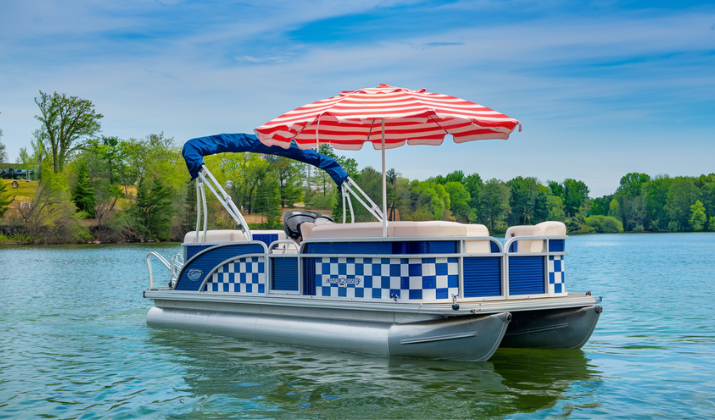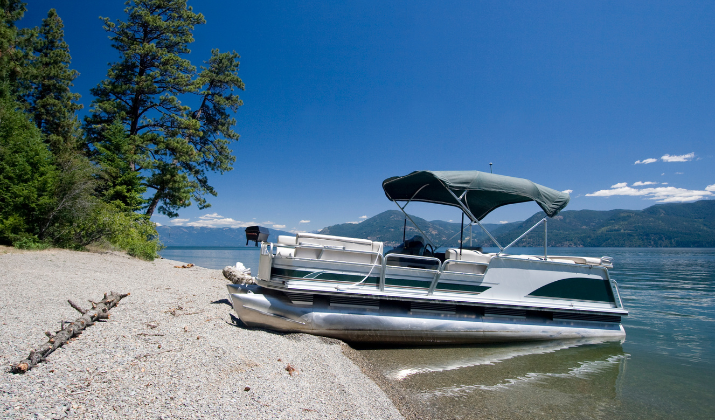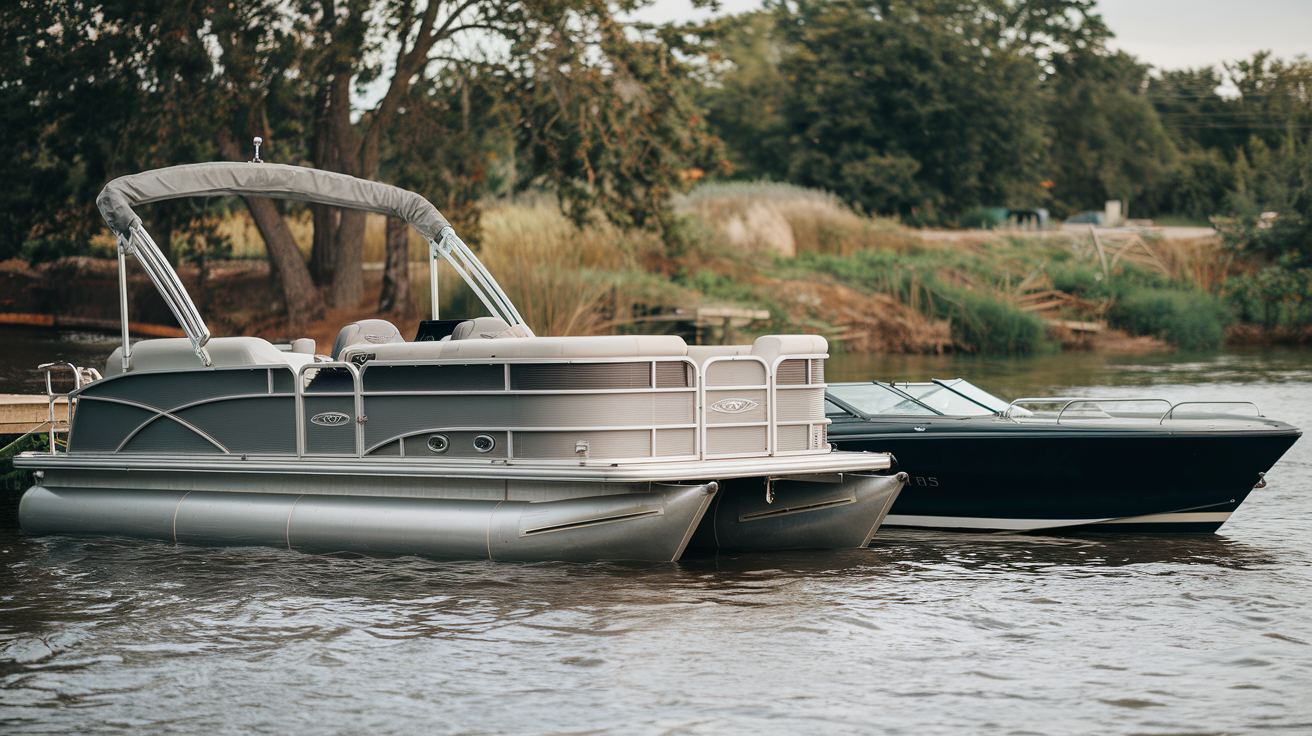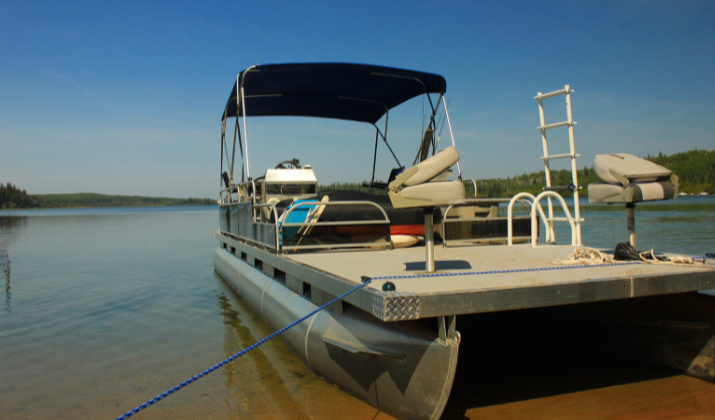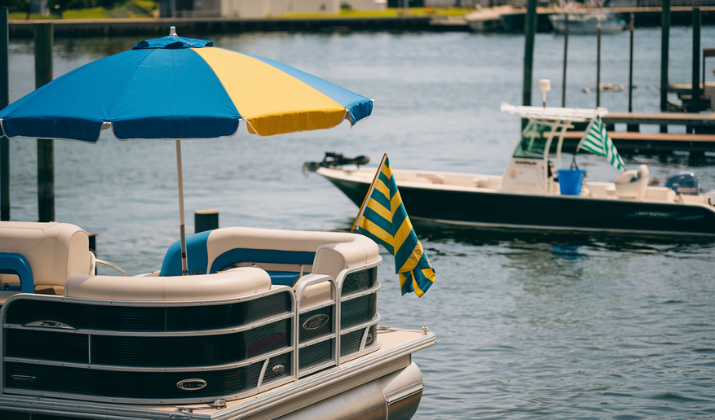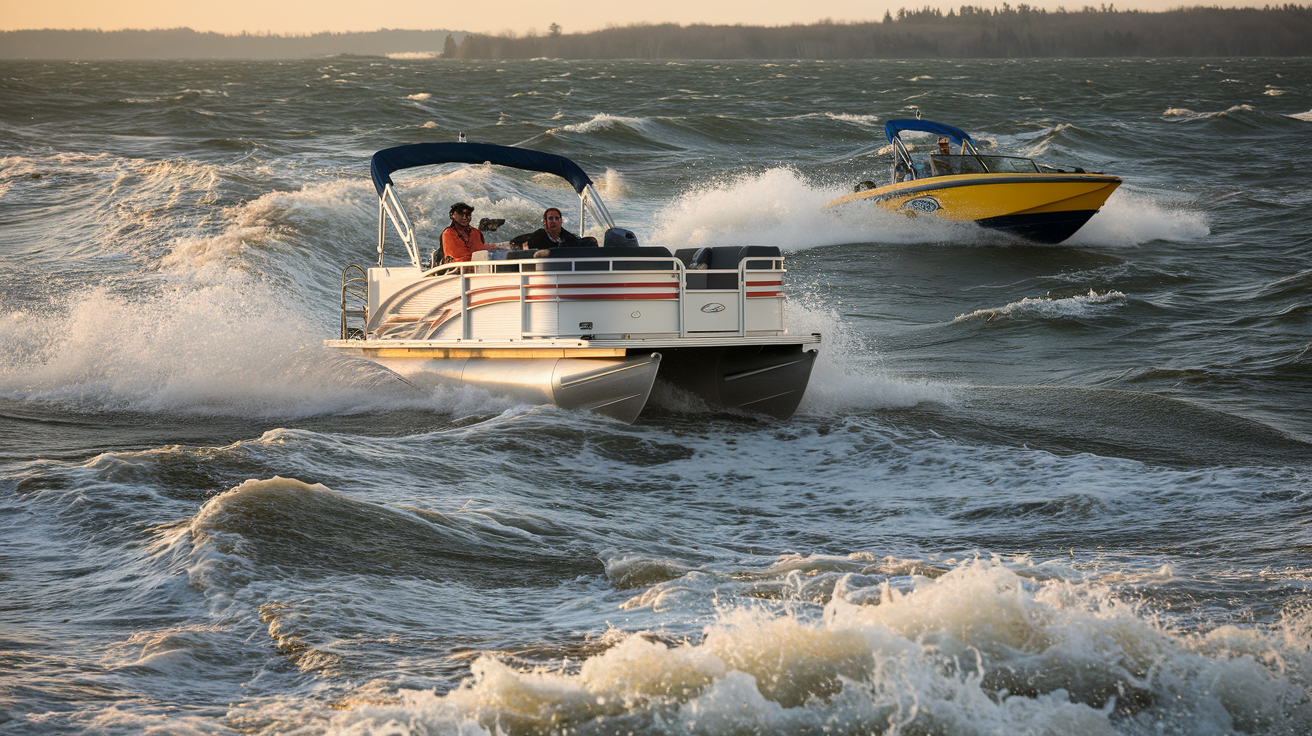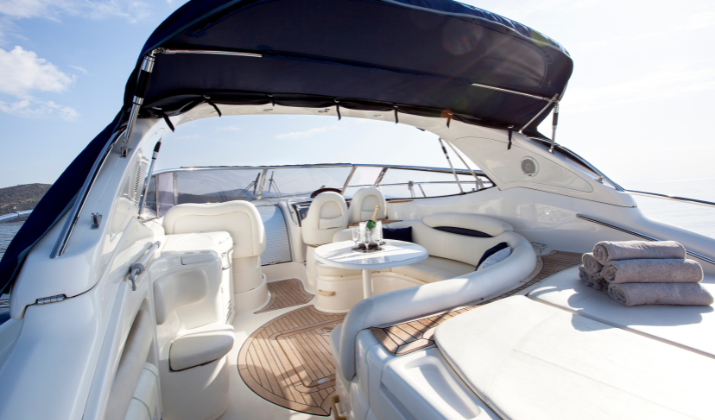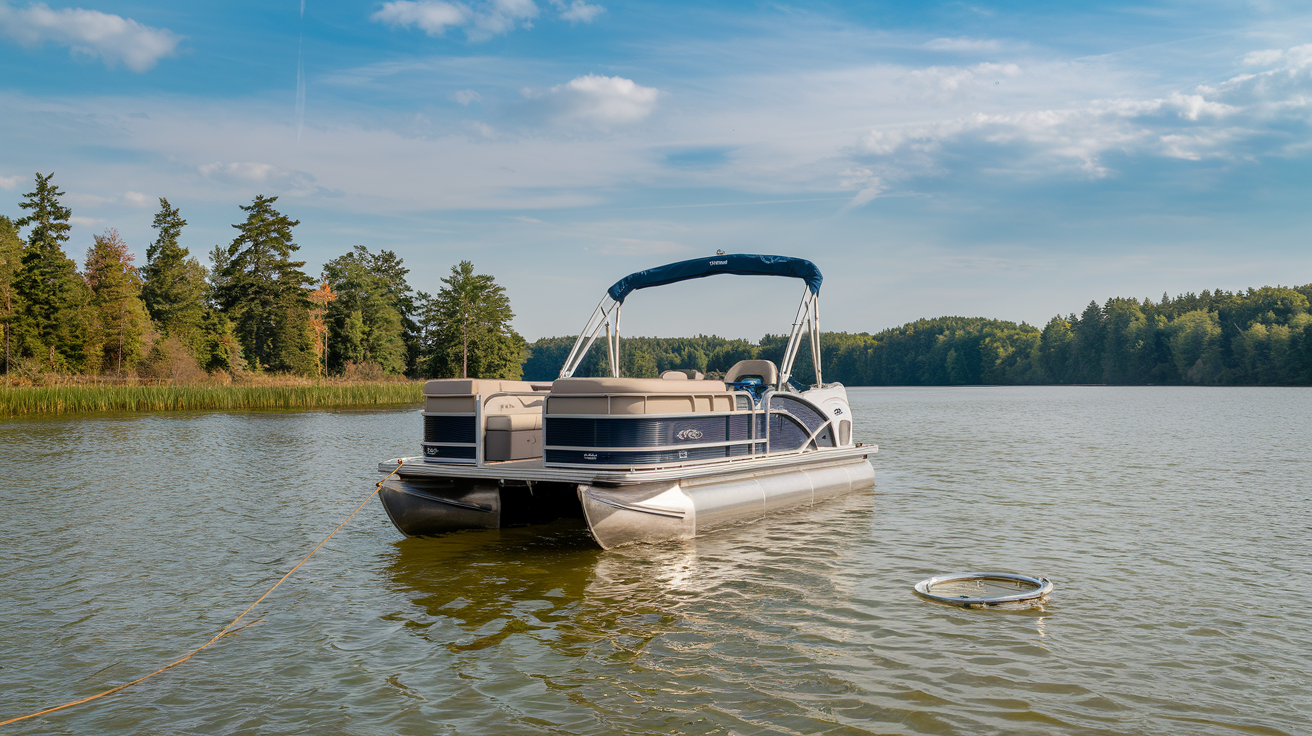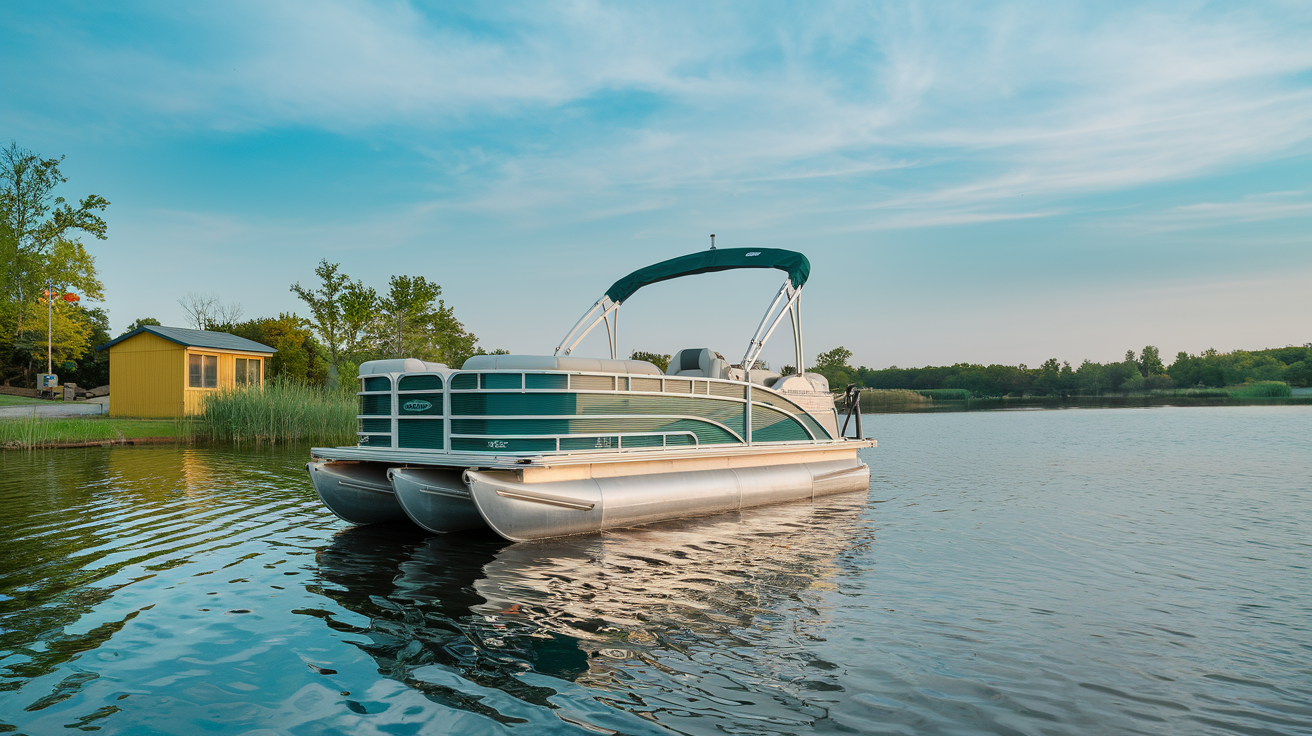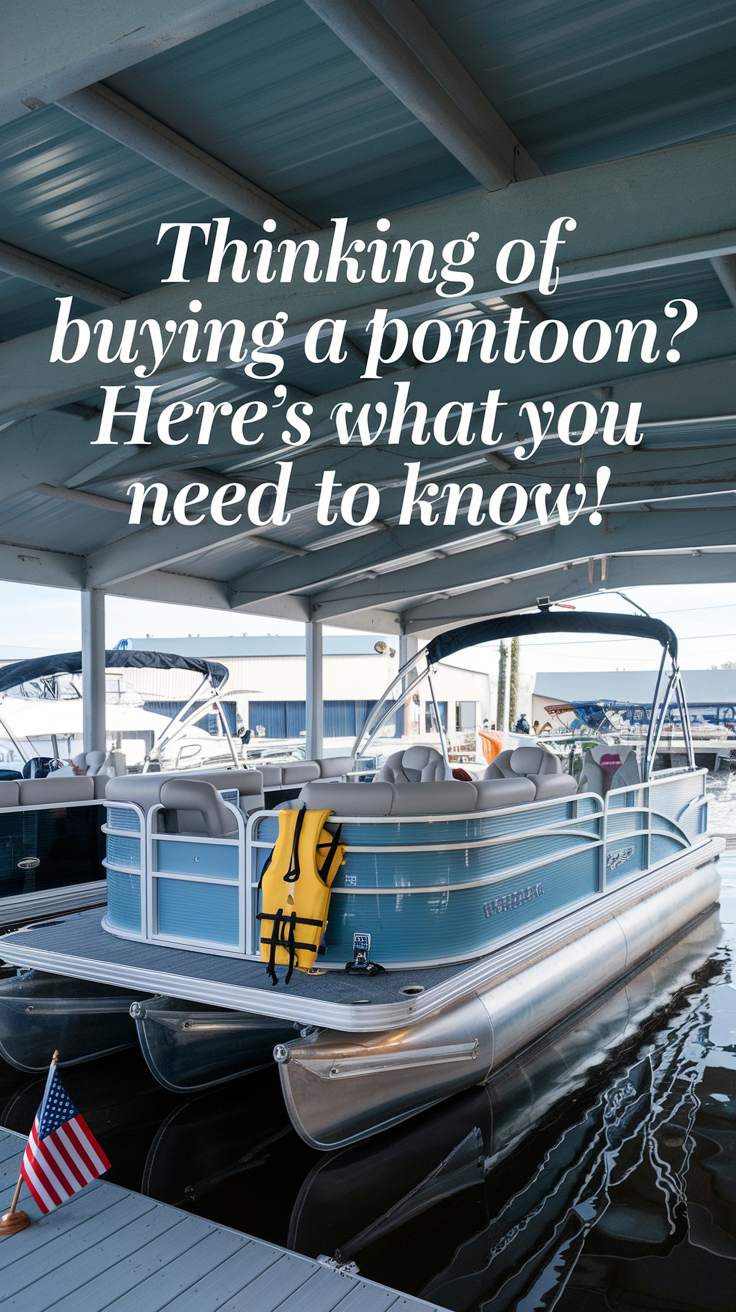The allure of the open water calls to many, but choosing the right boat can feel overwhelming.
If you’re considering a pontoon boat, you’re on the right track to endless summer memories, relaxing sunset cruises, and perfect days spent with family and friends.
This comprehensive guide will walk you through everything you need to know before making your purchase, helping you navigate the waters of pontoon boat ownership with confidence.
Read on.
What Are Pontoon Boats?
Pontoon boats are distinct floating platforms built on hollow aluminum tubes (called pontoons) that provide buoyancy.
Unlike traditional V-hull boats that cut through the water, pontoons float on top of it, offering exceptional stability and spacious decks.
These vessels revolutionized recreational boating by combining the comfort of a floating living room with the functionality of a watercraft.
What sets pontoon boats apart from other vessels is their unique design and versatility. While speedboats prioritize performance and sailboats harness wind power, pontoons excel at creating a stable, comfortable environment perfect for entertaining.
Their flat deck design offers more usable space than similarly sized V-hull boats, allowing for customizable floor plans that can include everything from luxurious lounge seating to full bars and cooking stations.
Modern pontoons have also overcome their historic reputation for being slow, with many models now capable of reaching impressive speeds while maintaining their signature stability.
Size Matters
The size of your pontoon boat will significantly impact your boating experience.
Pontoons typically range from 16 to 30 feet in length, with each size category serving different purposes.
Smaller boats, ranging from 16 to 20 feet, are perfect for intimate gatherings of 6-8 people and offer easier maneuverability, especially for newcomers to boating.
They’re also simpler to store and maintain. Mid-size pontoons, between 20 and 24 feet, strike an excellent balance between space and manageability.
Larger models, 24 feet and above, can accommodate 12-15 passengers comfortably but require more substantial storage space and come with higher operational costs.
Consider your typical group size and intended use when selecting the appropriate length.
Cost Considerations
Understanding the financial commitment of pontoon ownership is crucial for making a sound investment.
New pontoons can range from $25,000 for basic models to well over $100,000 for luxury versions with all the bells and whistles.
Used models offer a more budget-friendly entry point, starting around $15,000, but require careful inspection and potentially higher maintenance costs.
Beyond the purchase price, factor in annual expenses that include insurance ($300-800), storage fees ($1,000-3,000 depending on your location and facility type), routine maintenance ($500-1,500), and fuel costs that vary based on usage patterns.
Many owners also invest in winterization services and optional upgrades over time, so it’s wise to budget for these additional expenses.
Essential Features
The construction quality of your pontoon boat should be a top priority when making your selection.
Look for aluminum tubes with a thickness of at least .080 inches – this provides the durability needed for long-term use and resistance to damage.
Marine-grade decking materials should come with a minimum 5-year warranty to ensure longevity. The cross-members, which provide structural support, should be reinforced to prevent flexing and potential damage during operation.
The outboard motor is another crucial component; most average-sized pontoons perform well with engines ranging from 90 to 150 horsepower.
Pay special attention to the motor’s maintenance history when buying used and consider reliability ratings when selecting a new one.
Performance Options
Modern pontoon boats have evolved far beyond their traditional role as slow-moving party platforms. Today’s models offer various performance packages to suit different boating styles.
The standard twin-toon setup works well for casual cruising and provides good stability in calm waters.
For those seeking more excitement, triple-toon designs enable higher speeds and superior handling, particularly in rougher conditions.
Sport packages often include underskin panels and lifting strakes that improve performance and fuel efficiency.
Center tube options add another dimension to handling characteristics and stability, making the boat perform more like a traditional V-hull vessel while maintaining the spacious deck layout pontoons are known for.
Extra Amenities
The amenities you choose can transform your pontoon from a basic boat to a luxury watercraft.
Built-in coolers and storage compartments help maximize space efficiency and keep refreshments easily accessible. A changing room or privacy station proves invaluable during full-day excursions.
Premium sound systems with bluetooth connectivity and multiple speakers create an enjoyable atmosphere for entertainment.
Upgraded seating arrangements featuring chaise lounges and plush materials significantly enhance comfort during long days on the water.
A quality bimini top provides essential sun protection and can extend your time on the water comfortably.
Consider which features align with your intended use and remember that while amenities enhance the experience, they also add weight and cost.
Maintenance Requirements
Proper maintenance ensures your pontoon boat remains a reliable source of enjoyment for many years. Regular cleaning and anti-fouling treatment protect the tubes and deck from corrosion and marine growth.
The outboard motor requires servicing every 100 hours of operation or annually, whichever comes first. This includes oil changes, filter replacements, and general inspections.
Tube inspection should be performed regularly to catch any damage early, and repairs should be addressed promptly to prevent more serious issues.
Proper winter storage preparation is crucial in colder climates, including winterizing the engine, protecting upholstery, and ensuring proper coverage to prevent weather damage.
Make a Smart Purchase
The buying process requires careful consideration and due diligence. Research multiple dealers to compare prices, service quality, and reputation in the boating community.
Always take a test ride before purchasing – this gives you a feel for the boat’s handling and helps identify any potential issues. Carefully review warranty coverage, particularly for major components like the engine and tubes.
When considering certified pre-owned options, these often provide a good balance of value and peace of mind through dealer inspection and limited warranties.
For used boats, investing in a professional marine survey can save thousands by identifying hidden problems before purchase.
Focus on build quality and reliability over flashy features, as a well-maintained pontoon can provide 15+ years of family enjoyment on the water.
Conclusion
Investing in a pontoon boat represents more than just purchasing a watercraft – it’s investing in countless memories and adventures on the water.
While the decision-making process might seem daunting at first, understanding these key aspects will help you make an informed choice that suits your needs and budget.
Remember that the perfect pontoon boat is the one that matches your specific requirements for size, performance, and amenities while falling within your budget for both purchase and maintenance.
Take your time during the selection process, thoroughly research your options, and don’t hesitate to ask questions of dealers and other pontoon owners.
The right pontoon boat can provide decades of enjoyment, making it well worth the effort to find the perfect match for your boating lifestyle.
Whether you’re planning peaceful sunset cruises, exciting water sports adventures, or memorable family gatherings, a well-chosen pontoon boat will serve as your gateway to incredible experiences on the water for years to come.


